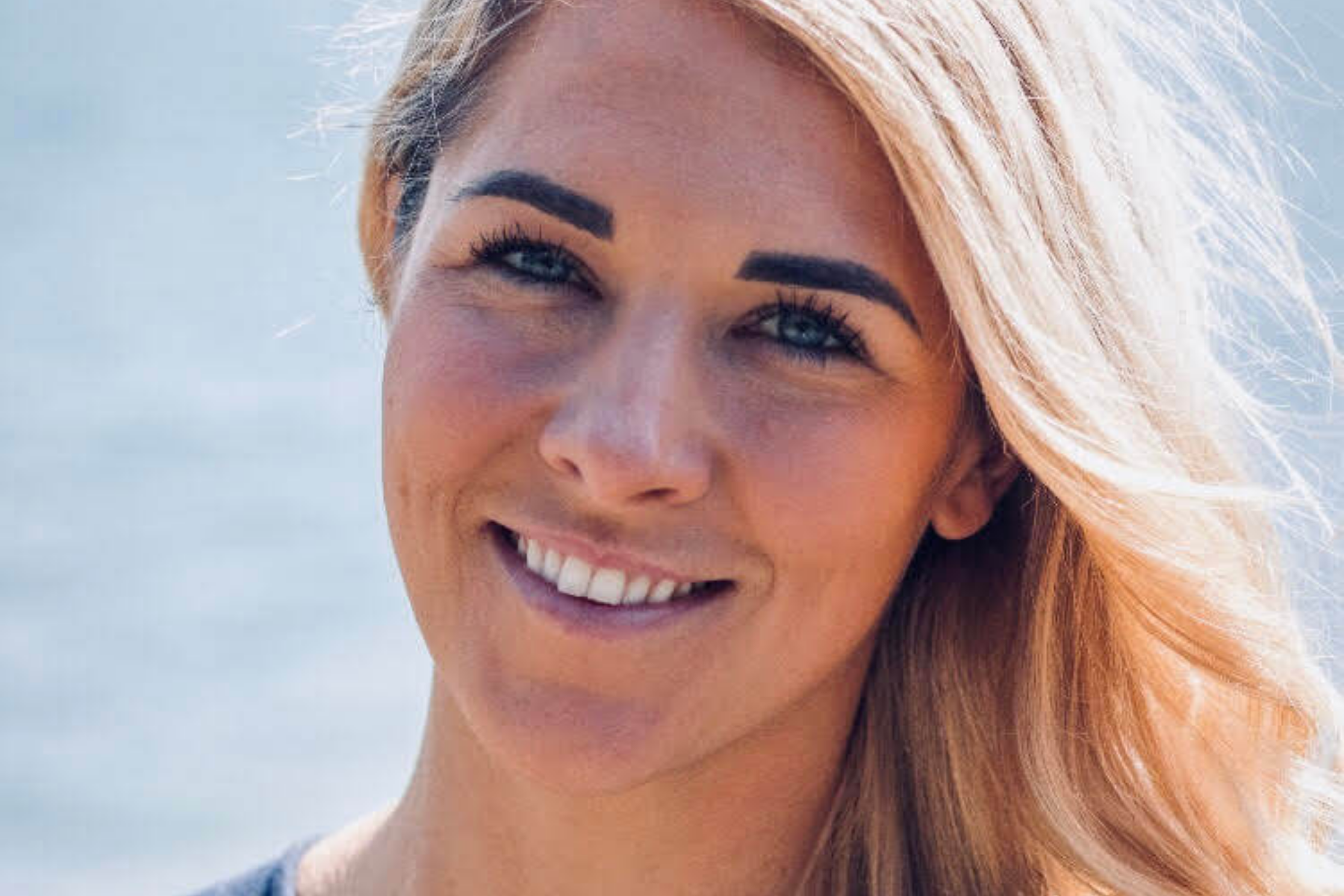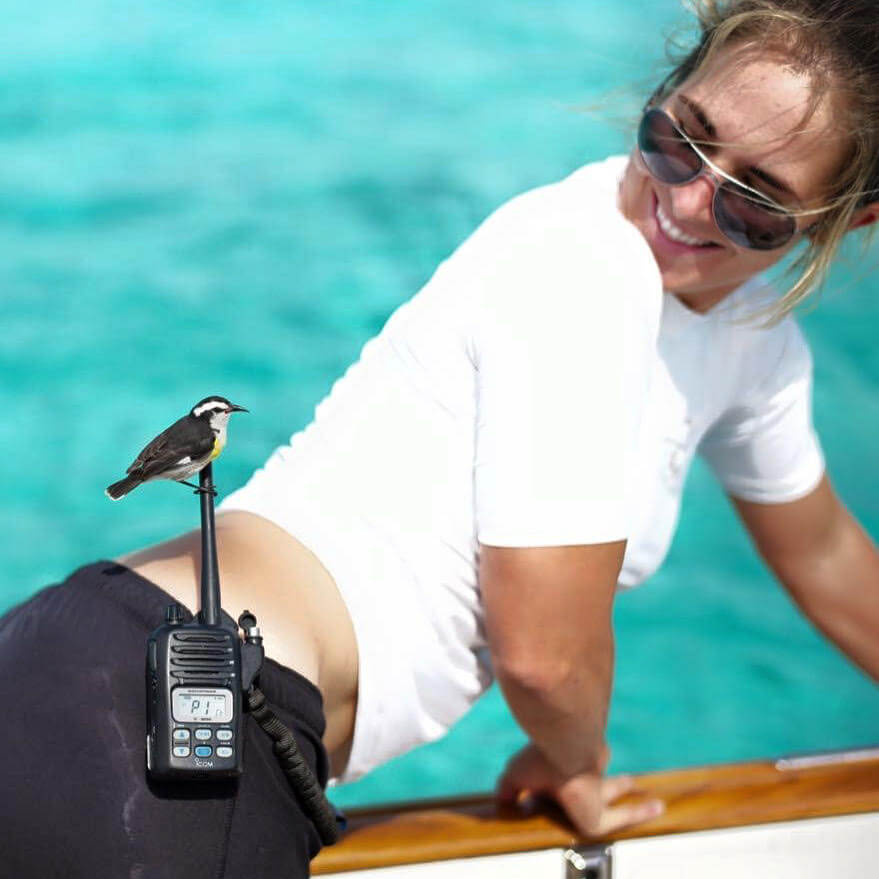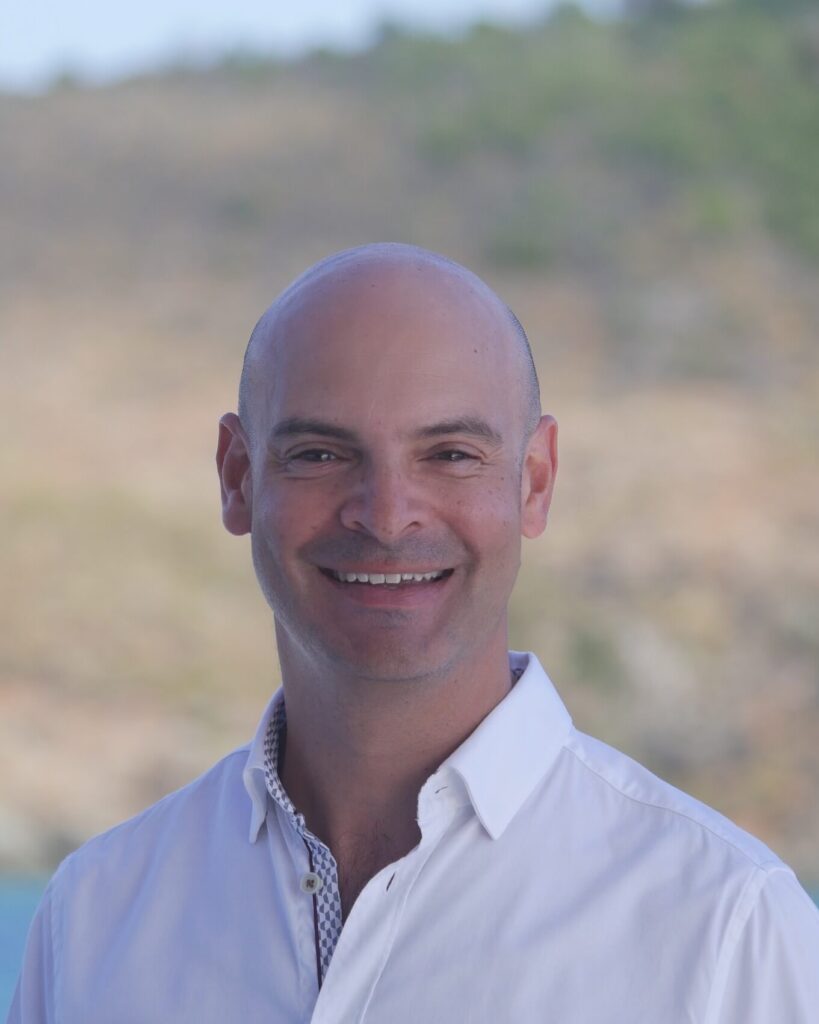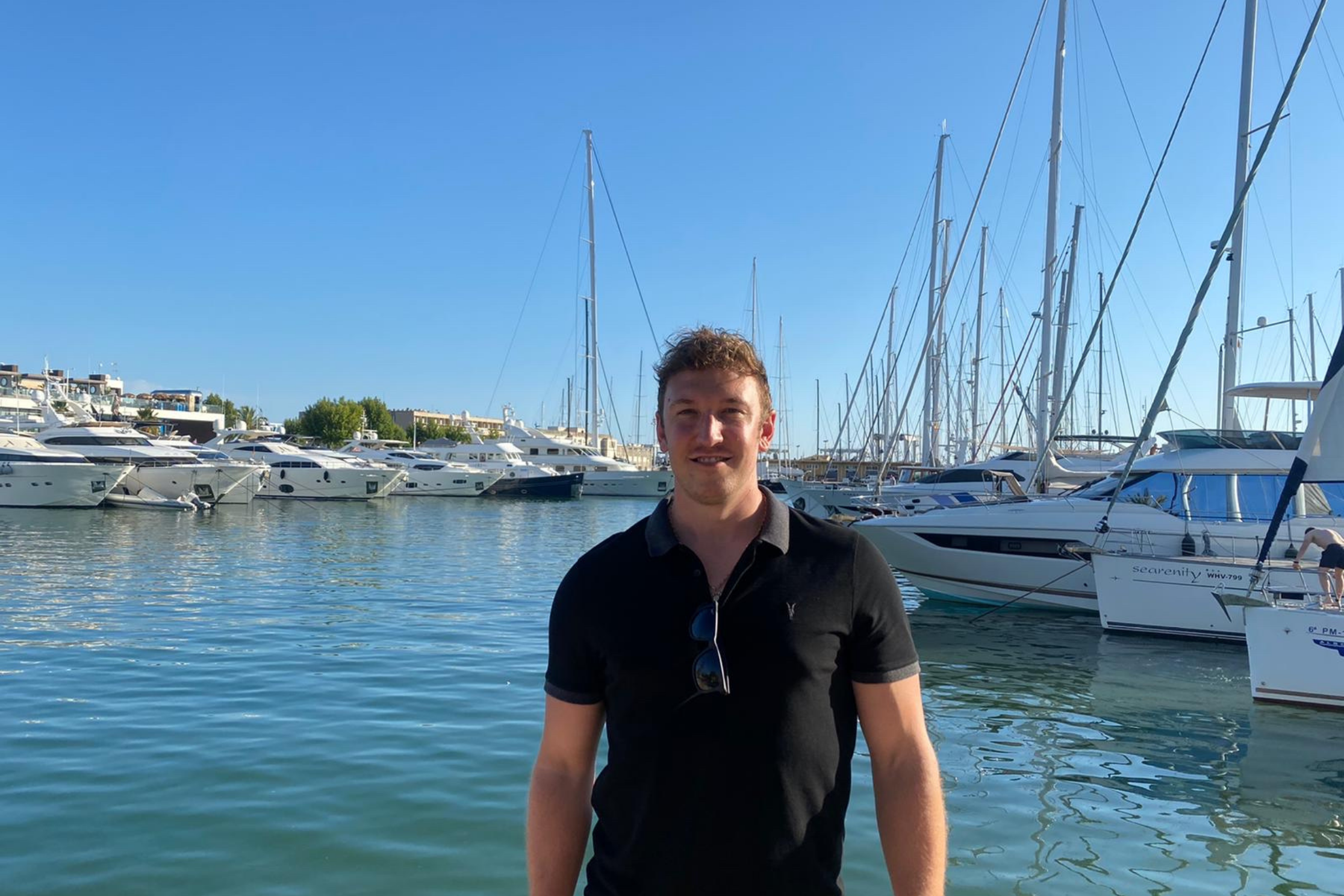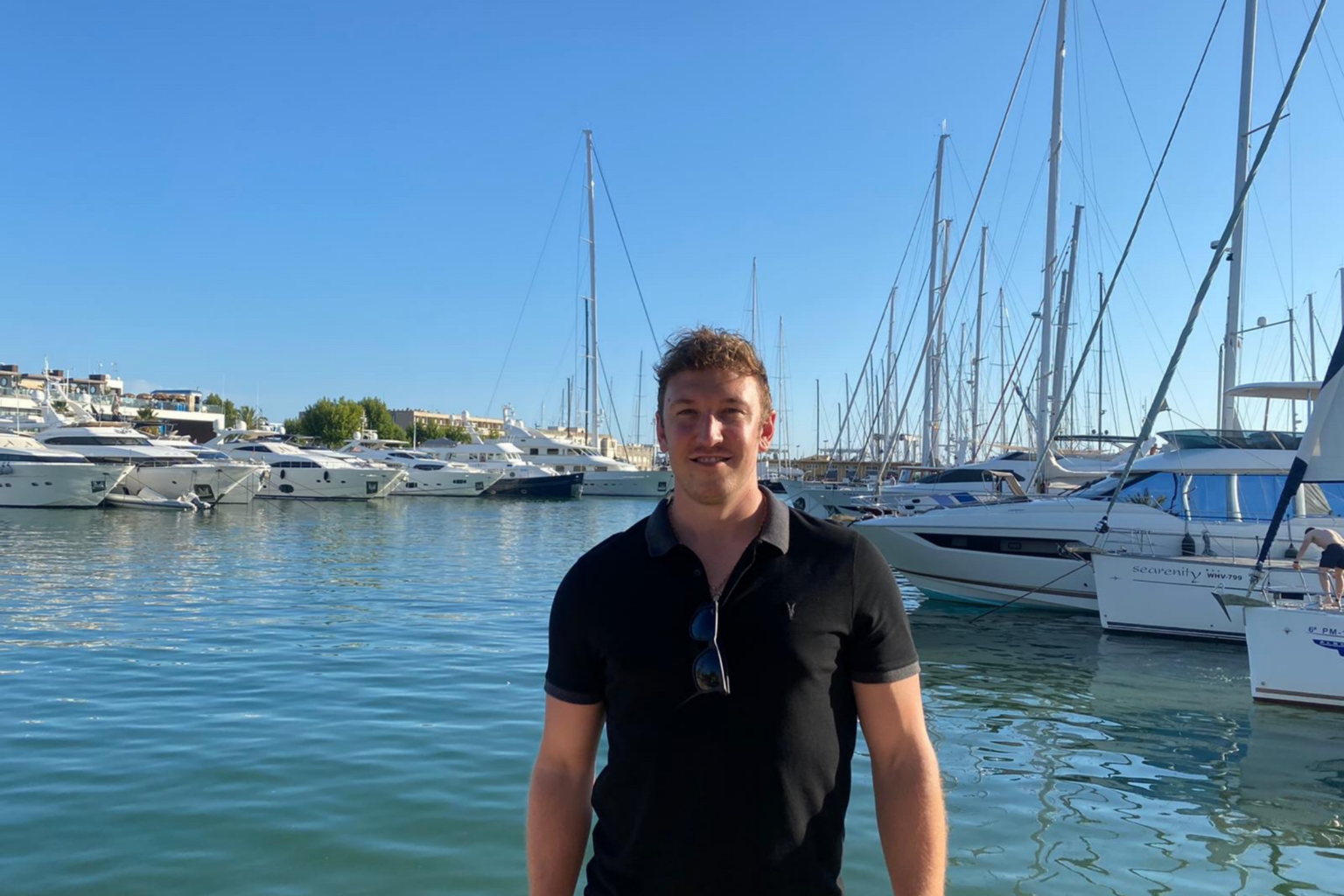Jenny Matthews – Diversity Queen!
Jenny Matthews. Need we say more?! She is at the forefront of creating diversity and inclusion within the yachting industry and not that this needs to be said but of course, the founder of She of the Sea. Which “holds the clear vision of a high performance, competency focused yachting industry, regardless of gender, race or any other factors.” Featured in Business Insider, The Guardian, Mega Yacht News and more, she has certainly been making waves (sorry I had to!) in the industry. Although she claims she hasn’t exactly had an incredible career but rather a unique one, we beg to differ! Read more about Jenny’s journey, where she is now and where she’s headed.
Can you tell our VP tribe a little about your background that led you into yachting?
Being from NZ, I think a lot of kiwis grow up with a bit of salt in their veins and an affinity for the ocean. That is certainly the case for me and although I was never much of a sailor. I spent a huge chunk of my teens out on the water at the crack of dawn with the rowing team. Looking back, I feel it was this foundation in a highly competitive sport that led me to yachting. I’ve always been obsessed with creating an environment where a team of people can reach their highest potential, with a particular interest in the human side of it, what makes a team tick etc. As I went straight from college to yachting (stopping off on Lord Howe Island to get my Dive Master), I can really only attribute being led to yachting to that courage you have as a teenager to just jump into something that excites you and work out the details as you go!
You’ve had an incredible career; can you tell us about it and how you got to where you are today?
This is a great question and a bit challenging to be honest as I don’t really feel like I’ve had an incredible career. Unique perhaps, but it doesn’t feel any more so than anyone else! I think the challenges that have popped up have really shaped it so far, for example knowing I wanted to work in the deck department and being shuffled into the interior because ‘women don’t work on deck’ (2008). I’ve found a lot of inspiration from people of all genders along the way, though I will tip my hat to those that have faced adversity due to not fitting the ‘yachting norm’ and have paved the way for those following them up the ladder. I’ve been really fortunate to have amazingly supportive people along my journey, and equally so there have been periods with very little support which have in turn built an element of resilience and self-reliance that I am proud of and serves me well.
I feel like one of the main words to describe my career so far is eclectic. I’ve worked on both motor and sail, with such a diverse range of characters and since I’ve been sticking to temp work this past year. I’ve found so much value in seeing lots of different leadership styles, procedures, drills, training, operations etc. I can’t recommend it enough to people looking to expand their horizons and pick out the bits that resonate the most with them!
She of the Sea and LEGASEA are really extensions of Tash (my partner and co-pilot) and I’s a passion for the industry and our desire to see it be as fulfilling, professional and incredible as it is at its best. These days it feels a bit surreal to be sharing my time between being onboard, which I love, and working on programs that are making yachting a better place.
She of the Sea is such an exciting movement, how did this come about?
She of the Sea was really born out of curiosity and in some way I really just wanted some female friends that had similar shared stories for us to connect about and learn from each other! At the time, I had just achieved the Chief Mate 3000GT and although I had amazing male peers, I was really missing that female side. I wanted to reach out and connect, and it turns out I wasn’t the only one! I asked a question on Facebook, something along the lines of ‘ is anyone else out there?’ And it blew up. From there I googled how to build a website and the rest is history!
I really think it was the right platform at the right time and has now evolved so much further than the community and is moving in real action to support and amplify women in male-dominated spaces at sea. We have such an amazing community now that is growing by the day, and I have to say, getting to know the generation of women coming up the ranks is SO inspiring, it’s what really drives us and we get a kick at each milestone they reach! We have been really amazed at the support for the conversation from all genders, from both ashore and at sea, and although it’s obvious that you’re never going to resonate with everyone, we have seen a HUGE increase in engagement from across the board.
LEGASEA is the natural evolution of She of the Sea, and while SOTS will continue to do what it does best (supporting and connecting women in the deck and engineering departments), LEGASEA is speaking to Yachting’s overall social impact. Its programs will dive into diversity, equity and inclusion, community outreach, a circular knowledge economy and further understanding who we are as an industry and the challenges we collectively face.
We would love to hear what diversity, equity, and inclusion mean to you and why they’re important?
Great question! Diversity is the mix of individuals, identities, talents, experiences and perspectives. Demographics range from factors such as race, ethnicity, gender, age, orientation to the socio-economical background, education, political beliefs and religion. Diversity of thought, the background is also a big part! Without inclusion, diversity is unfulfilled potential. Inclusion is how people feel and are treated within a group.
Inclusion is when people feel valued, heard, safe, able to fail while they innovate, feel they have the opportunity and a sense of belonging and will be evaluated based on their merits. It’s about equal opportunity, resources and support. For example, there’s no point pulling up an extra chair to the table if no one listens to what that person has to say, or they are intimidated into silence.
Equity is recognising that currently, different demographics face different challenges and some more than others. That doesn’t mean that those who don’t face these challenges are any less worthy, or their achievements mean less, it’s just acknowledging that they have not faced challenges that others have. Equity is recognising these unique barriers, removing them and ensuring that all our people have the appropriate support and opportunity to progress and engage.
So that’s a little “corporatey”, but in a nutshell, for me diversity, equity and inclusion are recognising that it’s our differences that make us stronger, better at our jobs and more open to new ideas. It’s really recognising that as a team, we are going to perform in a totally different way when everyone feels accepted and safe to show up as their full selves, to question, to support, to share ideas.
When I’m putting together a deck team, I make sure I’ve got a great mix, both mentally, physically and emotionally, someone tall, someone who’s super detail orientated, someone with some brawn, someone who’s had experiences totally different to myself etc. I want as many different skills, outlooks and mindsets as possible to build out a really strong, all-round team. If we all have the same strengths, we aren’t going to be able to perform anywhere near as good as a team with a good mix where everyone contributes. An analogy I use sometimes is that if you try to fix an engine with 10 of the same spanners, you’re not going to get very far.
In your opinion, what are the challenging aspects of creating a diverse working environment in the yachting industry?
Wow.. where to start! Ha! To say there are many is an understatement but honestly, from what we have seen over the last 3 years it’s clear that as an industry, we have enough brilliant, passionate and committed individuals to know that we will get there.
There are big challenges around the basics like education on the topics, including sustainability as our industry seems to be stuck on this only being about the environment (Sustainability is in fact made up of three key areas, social, environmental and governance). Awareness and visibility are closely linked to this as well and although we are seeing this being talked about more- again, we have a long way to go!
Unconscious bias plays a big part in perpetuating the status quo and while we all have it, the deeply engrained social norms of our industry will require a lot of consistent work to unpick.
A lack of industry policy and standard practices is a big challenge. This is a big topic and when we tackle this one we will see a big jump forward in terms of professionalisation in general.
Visual and verbal representation needs a lot of work, who does our media present as an’ expert’, who gets the mic, who do we see in our photoshoots, websites and webinars.
A lack of data and real quantitative and qualitative feedback from all industry stakeholders makes identifying the REAL challenges faced tough. It’s one thing to take action on what you think might be the problem but without these insights, it’s really hard to know if your solving the problem you need to be solving.
Community outreach is MASSIVE. Right now, you only know about the industry if you know someone in it, follow someone on social media or have watched Below Deck. That means that we have some major work to do on how we connect with the next generation of talent.
A lack of accountability for discriminatory behaviour is true for a lot of area’s that need to evolve for this industry to professionalise.
I could go on and on ( and do most days) but these are a few of the big challenges currently being faced and addressed. All of our LEGASEA and She of the Sea outputs are designed to move us forward and past these barriers which you can check out here https://www.legasea.org.uk
What is your approach to understanding the perspectives of colleagues from diverse backgrounds?
Connect authentically. That means different things for different people but I always find the more I listen and am able to learn about people as WHOLE people, and not just ‘ the stew’ or ‘the captain’, the more I am able to connect and facilitate what inclusion, belonging and support means for that person, at that time. We are all complex and unique so there’s no tick box to this, but bringing in a framework of expectation and awareness that not everyone has to agree with every single thing is important. It’s also not our job to change people’s minds or cultures to fit our narrative, so acceptance is a big part.
What suggestions would you have in handling a situation where a colleague was being culturally insensitive, sexist, racist, or homophobic?
My advice for the crew in general should they not feel to be in a position of power to personally deal with the situation is to keep a log of everything, speak to your HOD or trusted colleague and if need be, follow the onboard complaints procedure. I do acknowledge though that quite often it’s potentially a HOD, or some other person in a position of power that may be the issue so this is not as easy or as straightforward as it sounds. As each scenario is so different, it’s hard to give a simple answer to this but from a personal point of view. Being clear on your boundaries is an amazing and powerful attribute, and if you find yourself in a space where they are being crossed, and don’t feel the leadership onboard is strong enough to deal with it, then my recommendation would be to leave. Again, not always as straight forward but I’m a big believer that no boat is worth impacting your mental, physical or emotional wellbeing and for every bigot out there, there is a professional, educated and open crew looking for good people.
What changes do you want to see in the yachting industry?
I would love to see the industry professionalised. It feels like it’s time, doesn’t it? It feels like as an industry ( and to be honest, as a landscape, it’s only really roughly 30ish years old) we are in our awkward teenage years. Growing quickly, becoming more visible, but haven’t really caught up with ourselves in terms of industry practice, standardising performance, all-around professionalism and at least matching global standards in some pretty important areas. The ‘Wild West’ days are disappearing into the rearview and I’m excited for what yachting’s next phase is going to look like.
What have you loved most since you started this journey?
The people. The boats are pretty cool but to be honest for me it’s all about the people.
What’s next for SOTS?
All our latest programs are here www.legasea.org.uk ! Super exciting stuff like Mentoring, the Speaker Bank, V2 of the Pledge, the Impact Academy… it’s a lot!






